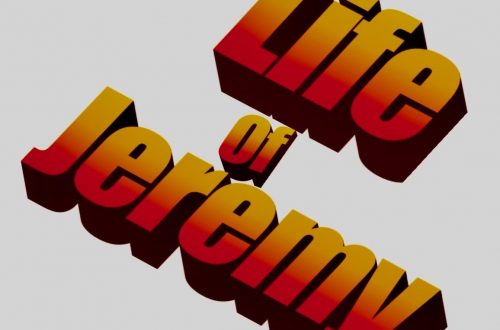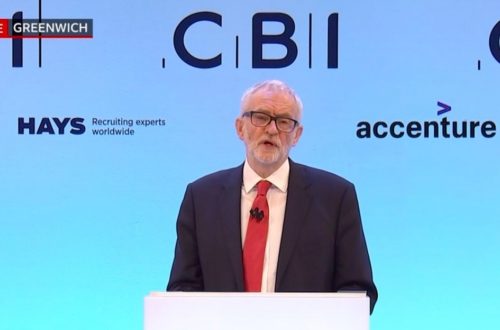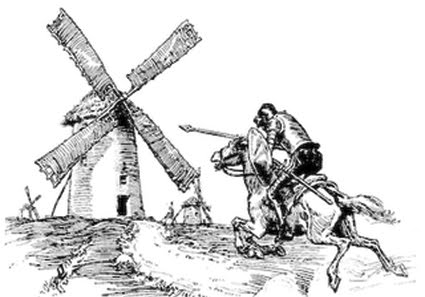So, where are we then with Blair and his opponents after Tuesday’s vote? Well, a good place to start is, Polly Toynbee’s column in today’s Guardian.
Out there in the real world, a million poor children have been lifted out of poverty by this government. Millions of families draw substantial tax credits to ease hardship. Poor pensioners have had their biggest ever increase. Scores of new hospitals are built and schools renovated with cascades more cash. NHS waiting times have dropped dramatically, school results improved as never before. The voters may be ungrateful whingers, moaning for more while forgetting how bad things were seven years ago – but they are sufficiently aware of what Labour has delivered to support it, and not the tax-cutting Tories who would take it all back.
Yet in the face of all that, Labour at Westminister is returning to its bad old ways. It is in danger of throwing it all away. It is decadence in politicians to put themselves, their “consciences” or their power-broking games before the people they serve.
Start with Tony Blair. He is to blame for high-handed arrogance in imposing an unpopular policy on his party and country without bothering to explain why. His first instinct was not to make top-up fees about opportunity for all, but about excellence for the Russell Group: the package that made it egalitarian came only through rebellion. That failure still leaves 60% of the voters, and most of middle England, against top-up fees. Worse, he dressed it up as some kind of brave new co-payment ideology for the future funding of public services. His taste for trouncing his own party got him the bloody nose he deserved. The Big Conversation is offered as a sign he will change. I have my doubts: he still has that messianic look in the eye. A man with no Plan B or reverse gear is not easily converted from conviction to consensus.
The rebels we know of old. They are weary of power: some lost it once they lost their red boxes and Rovers. Some 50 others on the far left are only happy in opposition: it’s more fun than the messy compromises of governing. The Nick Brown/Clare Short Brownites are barefaced faction-fighters: they want their man in and the Blair man out, regardless of what damage is done. Are they over-playing their crude hand? They may be making a bad error, since the spring in their master’s step suggests Gordon Brown thinks he will inherit anyway. But what will he inherit if strife-torn Labour gets the answer the voters usually give to warring parties? Any leader needs a strong and loyal party, not one riven with anger at how the leader came by his crown.
There are no longer men-in-suits or powerful union barons to knock Labour heads together. Every MP has to decide, each for themselves, that keeping Labour in power comes before everything else. The question is how best to do that.
Missing from Toynbee’s very accurate description is the Labour Party membership. From conversation and correspondence with party members, a peculiar picture emerges. Once there was a time when it was these activists who tore the party apart – at conference, in local government, in the unions and on the NEC. In those days the Parliamentary Labour Party stood in contrast to its members – it was populated by a collection of dignified if rather dull men, who appeared to be constantly frustrated in their attempts to get the party to back them. We mocked them as careerists, they shook their heads out our thoughtless ‘gesture politics’.
But now things have turned full circle. What is left of Labour’s membership is on the whole a fairly focused and disciplined bunch of people who have learnt the difference between operating as oppositionalists and being part of a party of government. They are more dignified and certainly a little dullier than in the past.
They are not, on the whole, fanatical Blairites, even if they can give that impression at conference time. They are councillors who remember what it was like trying to do the best for their communities under Thatcher’s cuts. They are community activists who remember the constant campaigns to ‘save’ and ‘defend’ when the Tories were in power. People who, for all their misgivings and disappointments with Blair’s government, are rather glad that the disputes today are about how to best improve public services and not about whether or not they should even exist.
But at the head of their party are a collection of MPs who are recreating the worst of the old factional politics. Blair has always ruled the party in a factional manner – there were those who were ‘on-message’ and those who were viewed as suspect, even if their politics were well within the confines of the old Kinnockite soft-left.
That Blair managed to alienate the soft-left shows how badly his team ignored coalition building in the party. Peter Kilfoyle, who despite his brave and vital role in defeating Militant is not a politician I have a great deal of time for, has a point when he talks (constantly) about how the Blairites have ruled the party in a factional manner not dissimilar in method to Militant’s.
Roy Hattersley, the archetypal old school member of the PLP, may bore with his constant reminder that Blair’s narrow factional approach has left him looking like a radical socialist, but it remains a truth.
If you exclude, if you close off dialogue as well as opportunites to those outside your trusted inner-circle, then eventually you are going to face the kind of hardened opposition that Blair has to deal with now.
But that opposition offers little to inspire the ordinary party member. Despite the multitude of Labour forums and think tanks there is little in the way of fresh ideas from the non-Blairite soft left. Sure Gordon Brown pressed all the right buttons in his conference speech but his naked ambition is hardly a basis for invigorating the membership of the party and to this eye it looks increasingly shabby.
There are probably only two occassions when I really felt strong support for Tony Blair. Firstly when he finally got rid of the Tories and won the election something which every Labour supporter can still be very thankful for.
I, like many others on the left, became quickly disillusioned with the direction Blair and his allies took in government, above all by their failure to try and make a clear shift towards social democratic values, but that feeling, balanced by a recognition of the genuine achievements they have made, can never compete with the deeply felt opposition to the governments that misruled us for 18 years and the happiness enjoyed when they were finally sent packing in 1997.
The other occassion when I really wanted to shake Tony Blair’s hand was after his eve of war speeches on Iraq to the Scottish Labour Party conference and to parliament. His message and his conviction in that debate presented a different Blair – a conviction politician willing to take a lead and fight for what he believed was right.
Given that Iraq is one of the motives for the current destablisation campaign against Blair, I find it hard to muster much enthusiasm for his opponents. That may be faulty logic but I really can’t give much sympathy for the same MP’s who voted to try and stop one of the most heroic and selfless interventions ever made by the British army and are now trying to make Blair pay for having helped the Americans liberate Iraq.
The fear of a Tory victory can always be misused in the Labour Party to cut debate short and silence critics and the scare-factor has been over-used by the Blairites in the past. But that doesn’t mean that there are not times when the Party should take a breather, have a look at the wider situation and decide that there is much to lose and little to gain from factional warfare.
At the risk of stating the obvious there are only two ways out of this crisis – either the parliamentary party puts aside its differences, with some give and take on both sides, and gets back behind Blair or the PM resigns and the party rallies around a Brown government. Which one it is going to be is a matter that others are better qualified to speculate on then I.
But one thing I am pretty sure of is that most party members would accept either outcome. The uncertain question is whether the PLP are still capable of such dull but dignified decisions?
They have to be because the alternative is prolonged infighting and the spectre of a return to a truly reactionary government. A government which will quickly have us re-assessing Tony Blair’s record while we examine Gordon Brown’s qualities as leader of the opposition.


